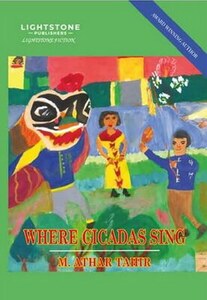Granta is one of those literary magazines that are read with genuine interest both by literature buffs as well as by those who create literature. The reason for this is the magazine's balanced and dispassionate (well, most of the time) approach to choosing its topics. Therefore, the selection of authors is seldom contested.
Not just that, in the 1980s' Granta also became a literary forecaster of sorts when it came up with a bold, but not unusual, idea in the form of 'The Best of Young British Novelists' series. Those who flipped through its pages at the time would remember an edition carrying pieces by the likes of Martin Amis, Ian McEwan and Zadie Smith - who were all budding authors at the time. Of course, a majority of them went on to become literary stalwarts.
Cashing in on the success of the concept and pushing the envelope, Granta then brought out works by novelists-to-watch-out-for from other parts of the world and published them in English translation. This proved another fruitful exercise on different levels. First of all, it launched, in a manner of speaking, writers who were not readily accessible to the English-speaking world. Secondly, it brought some exceedingly gifted writers into the limelight, allowing their talent to be acknowledged outside their countries. Granta's edition number 121 'The Best of Young Brazilian Novelists,' is one such worthy effort.
There are writings by 20 Brazilian authors in the magazine and all of them are a delight to read. However, I disagree with the notion presented in the foreword to the edition, that "this is a generation less interested than those that have preceded it in the question of a Brazilian identity." There is evidence enough that young Brazilian writers are as interested in their identity as their predecessors, albeit in a way that can be dubbed uncurious.
The first story in the magazine is 'Animals' by journalist and novelist Michel Laub. It is understandable why the editors at Granta chose it as the curtain-raiser. The story has layers of meaning with a symbiotic feel. The narrator is lamenting the loss of a dog called Champion. But it is not that uncomplicated. As can be gauged by the title of the story, it is not a single animal that the writer is alluding to as the family of the protagonist (and a Korean neighbour who owns a biscuit factory) comes into view to form a sensitive personal account.
The tone shifts from personal to semi-political with 'Violeta' by Miguel Del Castillo, an editor at a publishing house. I say semi-political because it's a poignantly penned narrative about the mother, Violeta, of a man who disappears "during the military dictatorship in Uruguay." The woman's character is feisty in a quirky way and about whom the refrain, "she doesn't look all that old," hides more than it reveals.
Though the collection contains 20 short pieces translated by different people, yet, for some inexplicable reason, the translations have a touch of uniformity to them. They convey the content loud and clear and create an urge in the reader to go through the original texts.
Take, for example, the short story 'Rat Fever' by journalist and screenwriter Javier Arancibia Contreras and translated by Jethro Soutar. It is a touching tale of a man handicapped by a leg injury and alone in a house. His mother's death keeps recurring in the scheme of things and exacerbates his psychologically damaged state. The loneliness gnaws at his soul (and perhaps comforts him at the same time), convincingly conveyed by the evocative narrative of the story. And what's the profession of the protagonist? Ironically, he's a translator. The following is a passage from 'Rat Fever' to support the argument: "Contrary to appearances, I'm not a writer, playwright, scriptwriter, columnist, journalist or anything of the sort. I am merely a translator. But not one of the trivial ones who translate from boring, insipid languages like English. I translate directly from uncommon languages, grammatically complex and unmelodious languages like the Scandinavian ones. What brings me most pride and massages my ego is that I'm considered the only proficient and qualified professional in the country capable of translating directly from the most mysterious, dialectic and literary of all the Slavic languages, Russian."
Diametrically different from this piece is Laura Erber's 'That Wind Blowing through the Plaza'. Her story reads like literary reportage (which it is not) and touches on the subject of art, artists and identity as craftily as the storyteller in the story. Again, the translation by Anna Kushner is impressive, and it increases the reader's respect for the author and the language in which it's originally written.
The verdict: Granta 121 is a must-read, especially if you are interested in South American literature.
The reviewer is a Dawn staffer
Granta 121: The Best of Young Brazilian Novelists
(Short stories)
Granta Publications, UK
ISBN 1905881630
256pp.
































